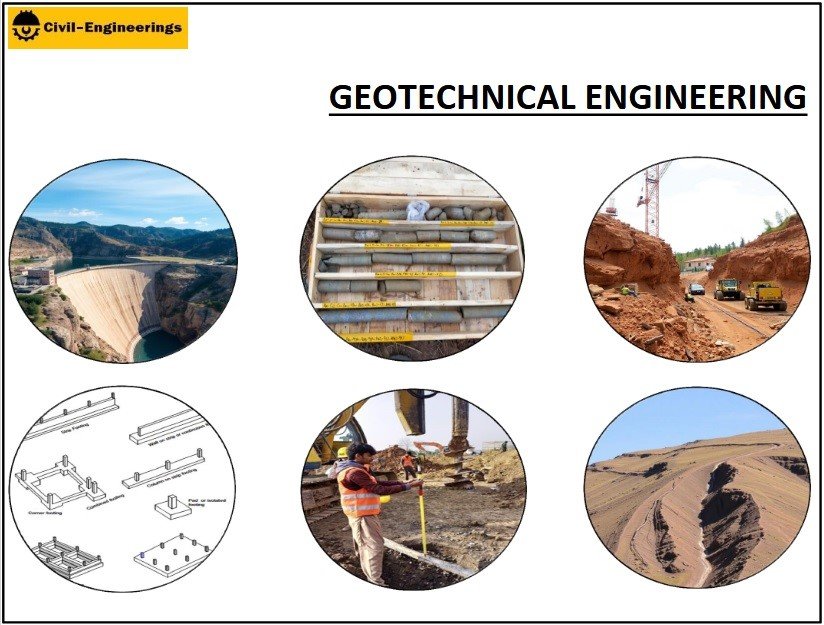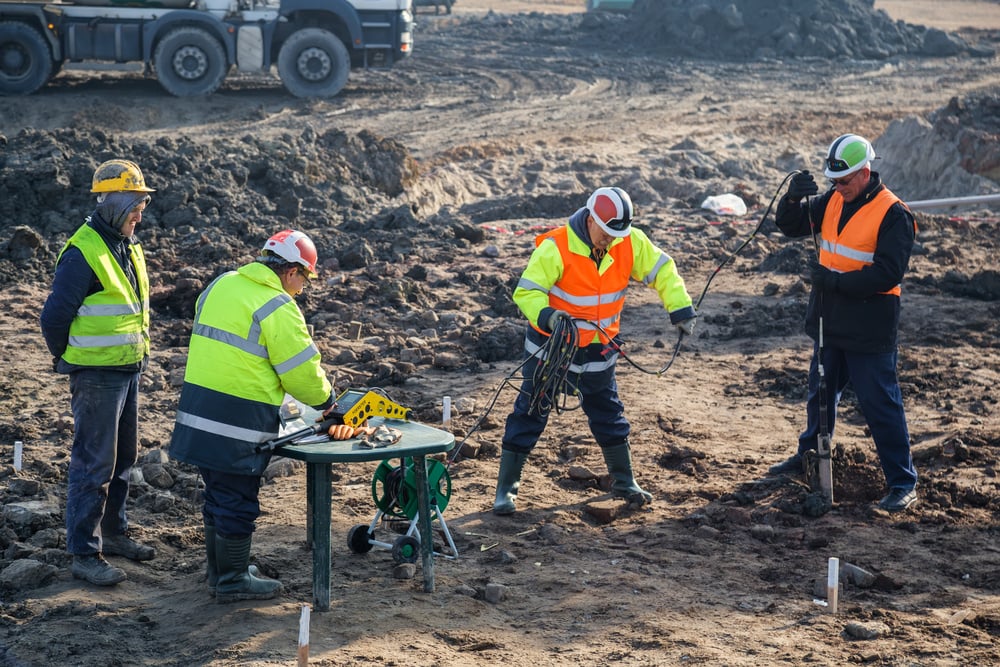Geotechnical Engineering For Construction Projects Things To Know Before You Buy
Geotechnical Engineering For Construction Projects Things To Know Before You Buy
Blog Article
Indicators on Geotechnical Engineering For Construction Projects You Need To Know
Table of ContentsSome Ideas on Geotechnical Engineering For Construction Projects You Need To KnowThings about Geotechnical Engineering For Construction ProjectsGeotechnical Engineering For Construction Projects - The FactsThe Ultimate Guide To Geotechnical Engineering For Construction ProjectsThe Only Guide for Geotechnical Engineering For Construction ProjectsThe Of Geotechnical Engineering For Construction ProjectsHow Geotechnical Engineering For Construction Projects can Save You Time, Stress, and Money.
"A report could be 25 years old, so the inquiry is: Has there been a structure on that site because they've done the report? What is around the website since had not been there back then?" said Cheryl - Geotechnical Engineering for Construction Projects. "So, that is where I start." Also when it comes to a restore, a geotechnical report carried out 10 years in the past is most likely too old. Both Cheryl and Joseph shared examples of red flags and failures related to geotechnical problems. Cheryl noted that, throughout building of the LRT passage in Ottawa (not a job she was entailed with), a substantial sinkhole opened up on Rideau Road, likely from the instability of damp, sandy dirt in the location.
Our Geotechnical Engineering For Construction Projects PDFs
"They were incapable to control the groundwater and it began leaking into the foundation wall surfaces throughout the program of construction," stated Joseph. He included that, when building contractors and developers prepare to use an uncommon or unusual building method, this can be a warning on a geotechnical record - Geotechnical Engineering for Construction Projects. With any type of geotechnical report, Joseph stressed: "It's extremely essential for developers and service providers to take another look at and abide by the recommendations."Loss control professionals are useful partners who can aid designers recognize the importance of a geotechnical record and take steps to complete them
Geotechnical engineering is a branch of civil engineering; however, it involves utilizing clinical methods and concepts to gather and translate the physical residential properties of the ground. Geotechnical engineers are associated with all stages of the design of frameworks, from concept to construction. Their job is essential in the style and planning procedure as they examine the stability of soil, clay, silt, sand, and rock, prior to construction starting.
Excitement About Geotechnical Engineering For Construction Projects

Worldwide of building and civil design, geotechnical engineering is a foundation technique that guarantees the security, toughness, and sustainability of any type of job. Without a strong understanding of the dirt, rock, and various other earth materials at a website, constructing reliable facilities would certainly be almost impossible. At STS Geotechnics we strongly count on the significance of sharing the vital role the Geotechnical Design plays in contemporary building and construction, website development, and environmental stewardship.
Geotechnical engineers analyse soil, rock, groundwater, and other subsurface conditions to evaluate their suitability for building and construction. This know-how allows them to forecast how these products will react to structures like buildings, roads, dams, and bridges, assisting make sure risk-free and stable foundations. Every structure or framework job depends on a foundation that is safe and steady.
Geotechnical design helps prevent various ecological risks that can endanger both individuals and the environment. With soil analysis, designers can identify potential concerns like landslides, soil liquefaction, and disintegration dangers.
Some Known Details About Geotechnical Engineering For Construction Projects
Engineers might develop projects that minimize the requirement for too much excavation or lessen land disruption, contributing to the conservation of natural environments and lowering the carbon impact of building and construction projects. Appropriate geotechnical investigation can significantly lower building costs by determining possible issues before building and construction begins. Understanding the subsurface problems assists in picking the most effective structure type and other structural elements, hence staying clear of costly redesigns and repair services.
They evaluate all-natural disaster threats like quakes, flooding, or hurricanes and help create frameworks that are gotten ready for these occasions. This strength is especially important as environment adjustment imp source causes much more constant and severe weather events.: Making sure a stable foundation is important for any type of structure. Geotechnical designers evaluate dirt and rock look at this now conditions to recommend the most effective foundation layout for security and longevity.
The conventional determines that geotechnical website examinations adhere to an iterative process (illustrated listed below) in which the outcomes of the examination are assessed versus the function for which the examination is being accomplished with additional examinations intended as called for. Basically, ground make-up and condition can vary substantially also within a tiny site.
Projects that neglect this crucial solution risk their development splitting, leaning, sinking, sliding and possibly collapsing as the earth below it moves. Experience dictates that a Geotechnical Engineer should be generated during the preliminary preparation stages of any building and construction task. Only then can their skills, competence and recommendations be utilized to prevent building issues before they happen.
Unknown Facts About Geotechnical Engineering For Construction Projects
On the planet of construction, every building depends on a structure and that structure is built on the expertise of geotechnical design. Commonly undetected but unquestionably crucial, geotechnical engineering plays an essential duty in ensuring the stability, security, and long life of structures. From high-rises to bridges, roadways to dams, the importance of geotechnical design can not be overstated.

Indicators on Geotechnical Engineering For Construction Projects You Need To Know
Incline stability and Earth retention: In uneven or sloped surface, preserving incline stability is essential to protect against landslides, disintegration, and soil motion. Geotechnical engineers analyze the stability of inclines and layout earth retention systems such as retaining wall surfaces or slope stablizing measures to reduce risks and ensure security. Ground improvement methods: In some cases, the soil problems at a building and construction site may be improper for developing without previous therapy.
Before setting up pipes, tunnels, or underground facilities, geotechnical designers assess soil conditions and groundwater levels to ensure proper placement and avoid possible dangers such as dirt settlement or pipeline damage. Building product choice: Dirt buildings influence the choice of building and construction products and strategies. Geotechnical engineers examine dirt characteristics to identify the viability of materials for structures, embankments, and earthworks.
Some Known Questions About Geotechnical Engineering For Construction Projects.
By carrying out aggressive maintenance actions, designers extend the life-span of frameworks and secure against unforeseen issues. In conclusion, the relevance of geotechnical design in building and construction jobs can not be overstated. From ensuring the stability of structures to taking care of environmental threats, geotechnical engineers play an essential function in every phase of the building process.
Report this page